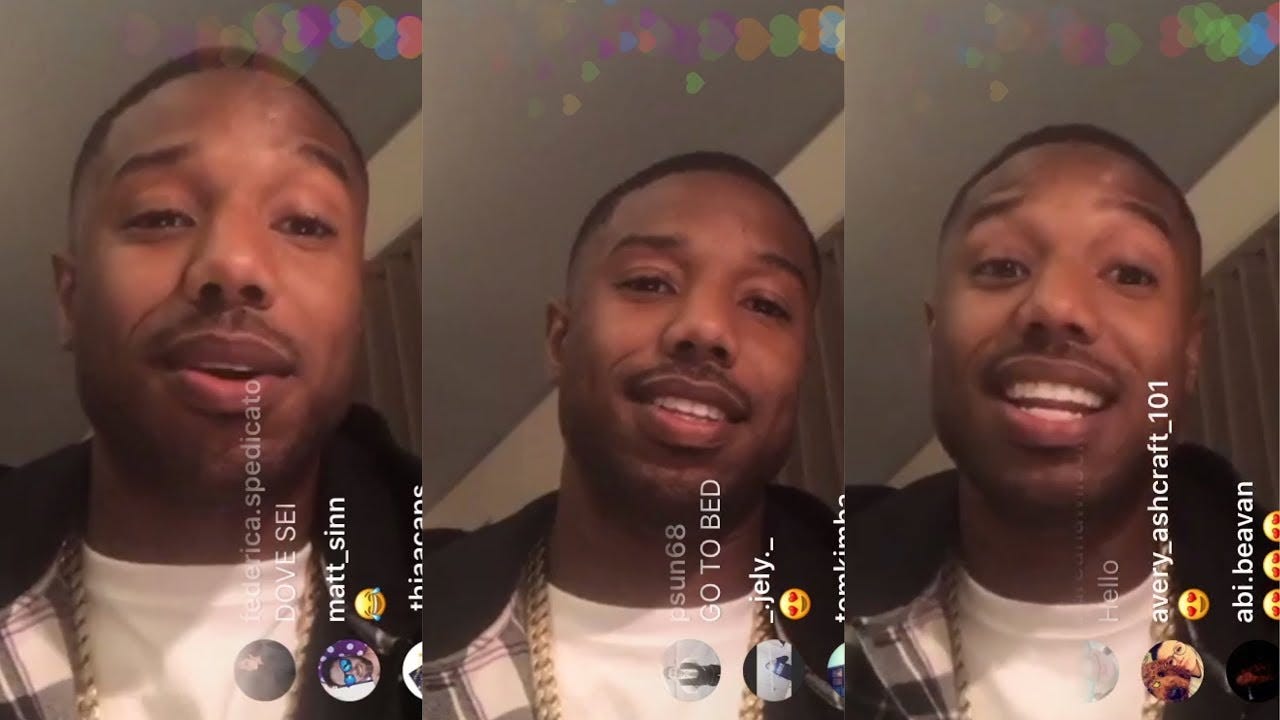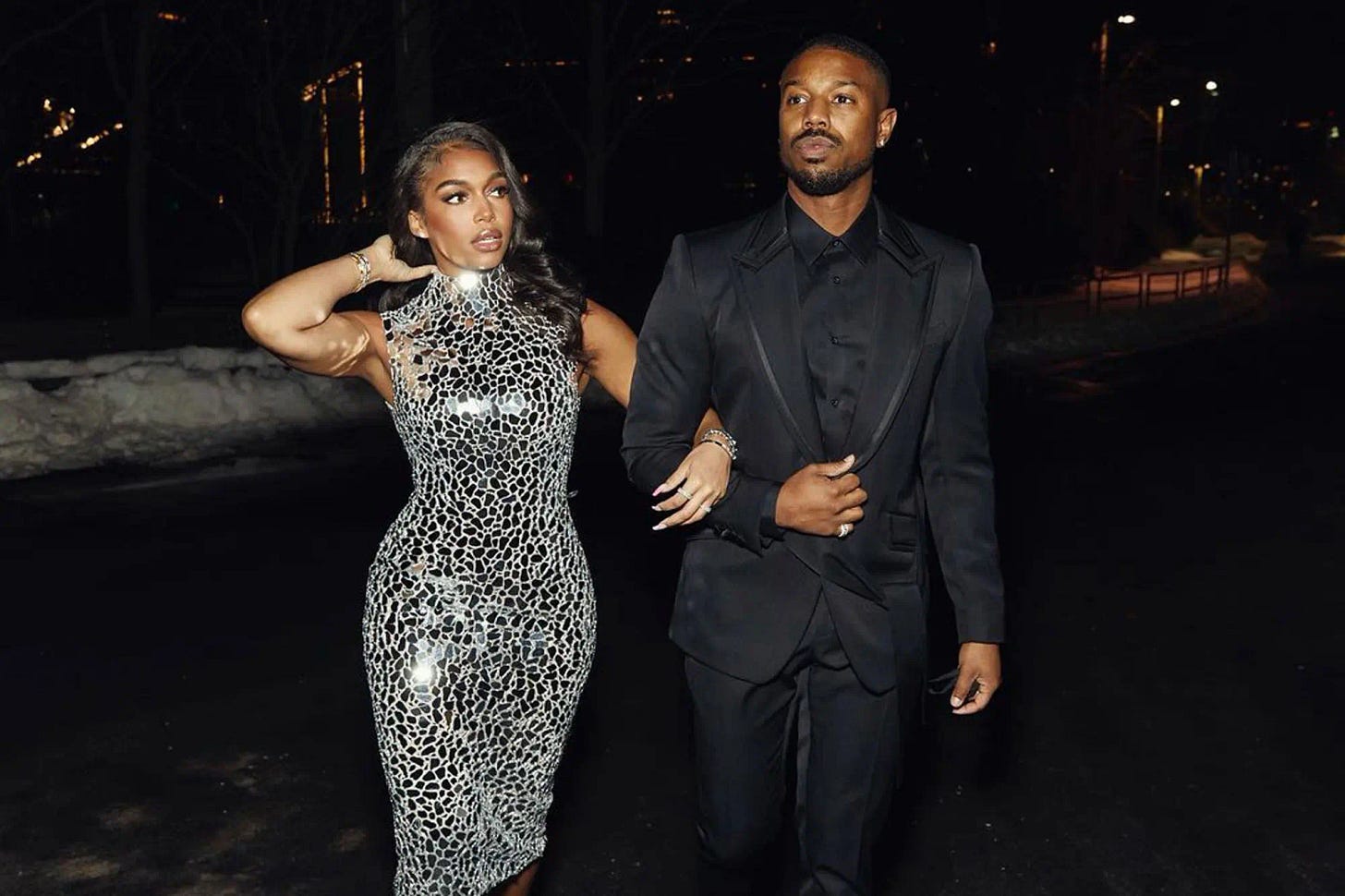With the release of Creed III this week, the actor and director Michael B. Jordan has been on a concerted press run that has seen him popping up everywhere. From his Rolling Stone cover to his Calvin Klein campaign, Jordan’s buzz is ripe.
Out of this week's media splashes for Creed III’s rollout, an awkward red carpet interview with radio and media personality Lore’l has garnered the most social commentary.
While interviewing Jordan for Creed III’s red carpet, Lore’l mentioned the pair’s earlier school days. To which Jordan replied, “The corny kid, right?” Lore’l eventually ends the interview with, “Well, you’re not corny anymore."
“To be honest with you, we teased him all the damn time because his name was Michael Jordan. Let’s start there – and he was no Michael Jordan…And he also would come to school with a headshot.” - Lore’l, The Undressing Room (2021)
The moment is cringe, but satisfying? Lore’l in the days after has refuted she bullied Jordan in school, but the optics and damage is already done.
Since their school days, the alleged corny kid Michael B. Jordan is an A-list Hollywood actor and People Magazine’s Sexiest Man Alive alum. In comparison to Jordan, Lore’l’s stardom is kinda dwarfed. While well known in the Tri-state hip-hop scene, her breakout role is arguably being cussed out by Erica Mena outside a club in season 3 of Love and Hip Hop: New York.
The issue is bigger than Lore’l though, and represents this unconvincing narrative always hovering on the outskirts of Jordan’s public persona.
To be a Black actor in Hollywood, especially at Jordan’s tier, it is a tightrope performing and reframing Black masculinity. Jordan’s core fanbase is Black women, and his most significant roles have been heavily aligned with Black liberation and culture (Fruitvale Station, Black Panther, and Just Mercy). Despite this, he receives the most criticism and corny claims from the Black community.
The first major blow being the rumor he doesn’t date Black women that has stuck around without any substantial evidence. In 2018, he was spotted while vacationing in Italy on a boat with a bunch of white women. The Shade Room and Black Twitter had a field day. He responded on Instagram live with some questionable quotes on the topic.
“I like milk. I like chocolate milk — I love chocolate milk. And I like almond milk, strawberry milk. You know the cinnamon toast crunch? The milk after that, I like that, too. That’s pretty good. I like milk period. Y’all just doin’ a lot. Y’all gotta chill.”
He would later go onto backtrack, but Black popular culture was pretty unforgiving. In late 2020, he entered his first public relationship to Black socialite Lori Harvey which marked his most corny era surprisingly. Like many I doubted their chemistry. Speculation around whether it was a PR relationship was unrelenting.
PR relationships similar to the nepo baby discourse is more nuanced than social media and commentary lets on. While Jordan and Harvey’s relationship could have began organically, they both engaged in some clout chasing activities during it.
Ultimately, the Michael B. Jordan corny/lame trope represents the constraints around the performance of Black masculinity within the Black popular culture space.
When actor Tyrese Gibson was clearly going through some emotional and mental turmoil, he uploaded the now infamous crying video. Instead of calls for Black men’s mental health to be taken more seriously, he became a meme and was clowned mercilessly.
When rapper Lil Nas called out BET’s homophobic practices, he was vilified for pushing a “gay satanic agenda”. Boosie Badazz (formerly Lil Boosie) has posted obsessive homophobic and transphobic hate speech on his social media. Rather than hinder his career, he has seen a surge in popularity and support within the Black entertainment space.
While having the physique and look of the “ideal” Black man, Jordan’s ability to have a range of interests and emotions that don’t directly align with Black masculinity seems to be the achilles heel. And that itself is truly disappointing.








